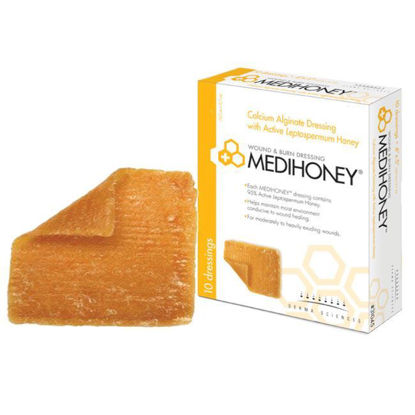- Brands
- Blog
- About Us
- Contact
- Daily Living Aids
- Catheters
- Compression Stockings & Socks
- Medical Cushions for Seating & Bedding
- Medical Incontinence Supplies
- Infection Control Supplies
- Ostomy Supplies
- Personal Care Medical Supplies
- Respiratory Care
- Wheelchairs & Accessories
- Wound Care Supplies
Alginate Dressing: Advanced Wound Care Solution
Alginate dressing is a highly effective wound care product known for its absorbent and biocompatible properties. This comprehensive guide explores the uses, benefits, and considerations associated with alginate dressings.
What is an Alginate Dressing?
An alginate dressing is made from naturally derived fibers, typically derived from seaweed. These dressings are processed to form a soft, absorbent material that becomes gel-like when in contact with wound exudate.
What are Alginate Dressings Used For?
Alginate dressings are primarily used for:
- Managing moderate to heavily exuding wounds
- Promoting wound healing by maintaining a moist environment
- Facilitating autolytic debridement of necrotic tissue
- Minimizing the risk of maceration in periwound skin
Are Calcium Alginate and Alginate the Same Thing?
Calcium alginate and alginate dressings are closely related but not identical. Calcium alginate dressings are made from alginate fibers combined with calcium ions, which help to enhance the dressing's integrity and absorption capacity.
How Often to Change Calcium Alginate Dressing?
The frequency of changing calcium alginate dressing depends on various factors, including the amount of wound exudate and the condition of the wound bed. In general, these dressings may be changed every 1 to 3 days or as instructed by healthcare professionals.
Types of Alginate Dressings
There are different types of alginate dressings available, including:
- Medihoney
- Maxorb
- Derma Sciences
- Medline
How to Apply Alginate Dressings
When applying alginate dressings:
- Cleanse the wound with saline solution or wound cleanser and pat it dry.
- Choose an appropriate size of alginate dressing to cover the wound and cut if necessary.
- Place the alginate dressing directly onto the wound bed, ensuring it overlaps onto the surrounding intact skin.
- Secure the dressing in place with a secondary dressing or medical tape.
Alginate Dressing Uses
Alginate dressings are beneficial for various wound types, including:
- Pressure ulcers
- Leg ulcers
- Diabetic foot ulcers
- Surgical wounds
- Partial-thickness burns
- Donor sites
In conclusion, alginate dressings are valuable tools in wound management due to their exceptional absorbency and ability to create a moist healing environment. With various types available and versatile applications, alginate dressings are suitable for managing moderate to heavily exuding wounds across different healthcare settings. Their biocompatibility and effectiveness in promoting autolytic debridement make them a preferred choice for healthcare professionals and patients alike. By incorporating alginate dressings into wound care protocols, healthcare providers can enhance patient outcomes and facilitate the healing process. Available for purchase in our online medical supply store. Order today!
Derma Sciences Medihoney - Calcium Alginate Wound and Burn Dressing
- Sterile
- Contains 95% active leptospermum honey
- Helps lower pH in wound bed for optimal healing
- Maintains a moist wound environment
- 2" x 2": each, box of 10, case of 10 boxes (100). 4" x 5": each, box of 10, case of 5 boxes (50)
Medline - Maxorb II Alginate Wound Dressing
- Primary dressing
- Ideal for moderate to heavily exudating wounds
- Prevents skin maceration
- Wear up to 7 days
- 4"x4"-Box of 10, 6"x6"- Box of 5
Alginate Dressing: Advanced Wound Care Solution
Alginate dressing is a highly effective wound care product known for its absorbent and biocompatible properties. This comprehensive guide explores the uses, benefits, and considerations associated with alginate dressings.
What is an Alginate Dressing?
An alginate dressing is made from naturally derived fibers, typically derived from seaweed. These dressings are processed to form a soft, absorbent material that becomes gel-like when in contact with wound exudate.
What are Alginate Dressings Used For?
Alginate dressings are primarily used for:
- Managing moderate to heavily exuding wounds
- Promoting wound healing by maintaining a moist environment
- Facilitating autolytic debridement of necrotic tissue
- Minimizing the risk of maceration in periwound skin
Are Calcium Alginate and Alginate the Same Thing?
Calcium alginate and alginate dressings are closely related but not identical. Calcium alginate dressings are made from alginate fibers combined with calcium ions, which help to enhance the dressing's integrity and absorption capacity.
How Often to Change Calcium Alginate Dressing?
The frequency of changing calcium alginate dressing depends on various factors, including the amount of wound exudate and the condition of the wound bed. In general, these dressings may be changed every 1 to 3 days or as instructed by healthcare professionals.
Types of Alginate Dressings
There are different types of alginate dressings available, including:
- Medihoney
- Maxorb
- Derma Sciences
- Medline
How to Apply Alginate Dressings
When applying alginate dressings:
- Cleanse the wound with saline solution or wound cleanser and pat it dry.
- Choose an appropriate size of alginate dressing to cover the wound and cut if necessary.
- Place the alginate dressing directly onto the wound bed, ensuring it overlaps onto the surrounding intact skin.
- Secure the dressing in place with a secondary dressing or medical tape.
Alginate Dressing Uses
Alginate dressings are beneficial for various wound types, including:
- Pressure ulcers
- Leg ulcers
- Diabetic foot ulcers
- Surgical wounds
- Partial-thickness burns
- Donor sites
In conclusion, alginate dressings are valuable tools in wound management due to their exceptional absorbency and ability to create a moist healing environment. With various types available and versatile applications, alginate dressings are suitable for managing moderate to heavily exuding wounds across different healthcare settings. Their biocompatibility and effectiveness in promoting autolytic debridement make them a preferred choice for healthcare professionals and patients alike. By incorporating alginate dressings into wound care protocols, healthcare providers can enhance patient outcomes and facilitate the healing process. Available for purchase in our online medical supply store. Order today!





